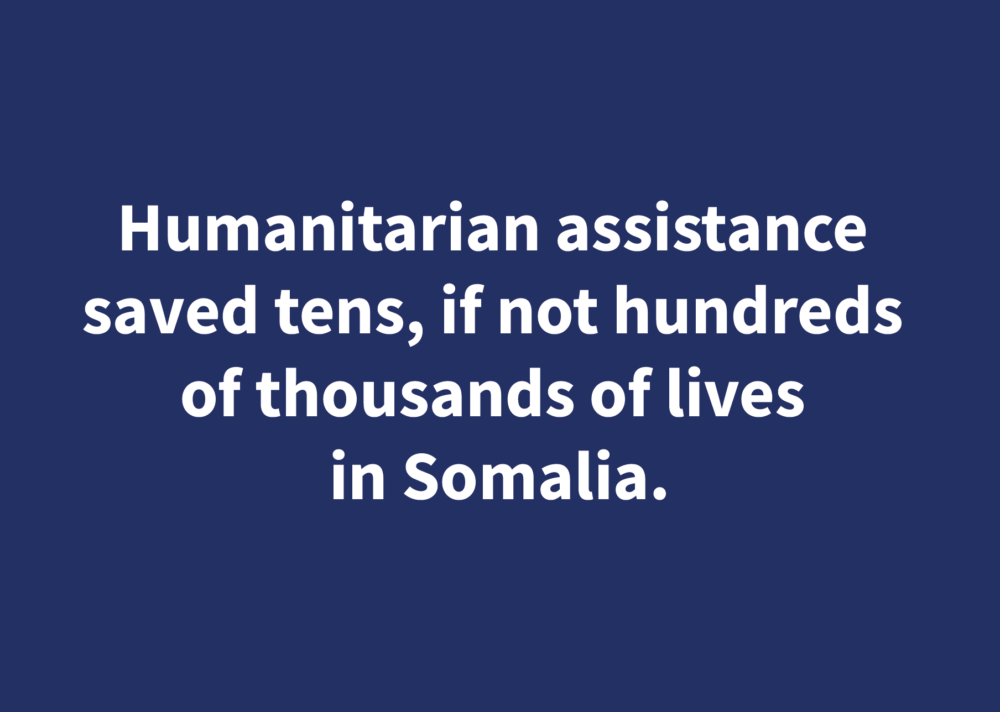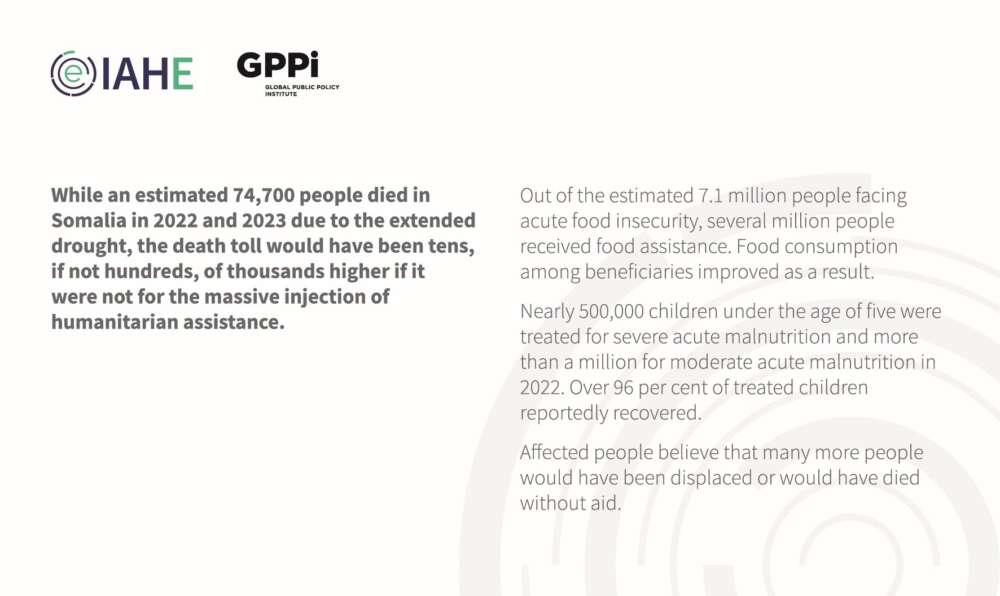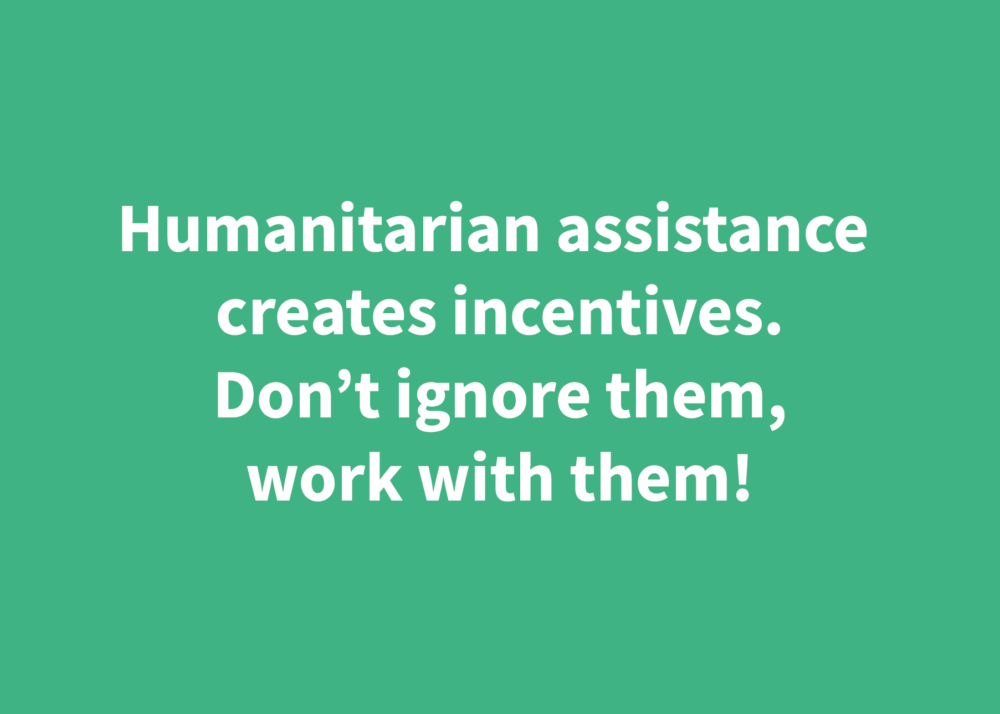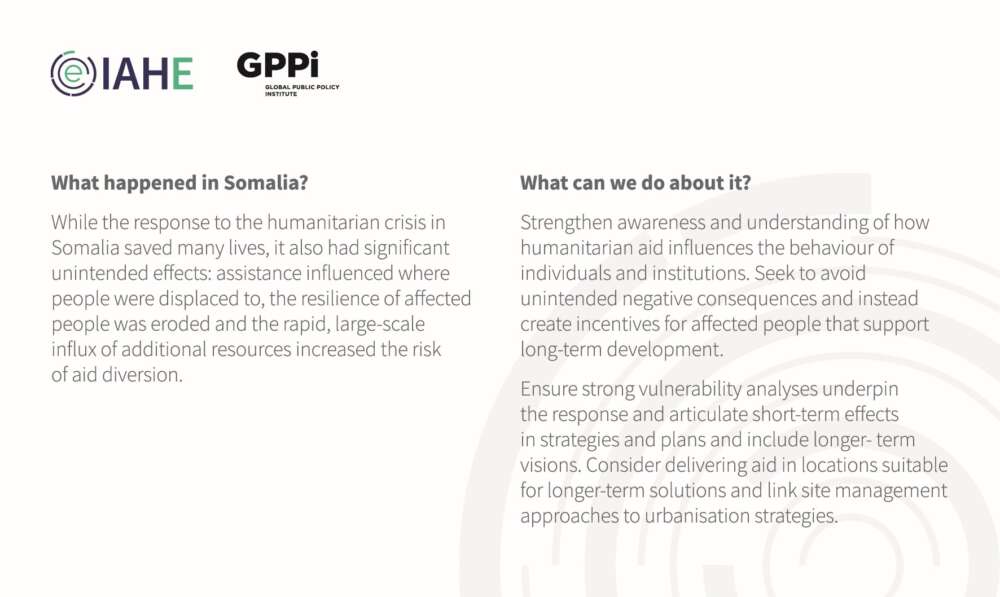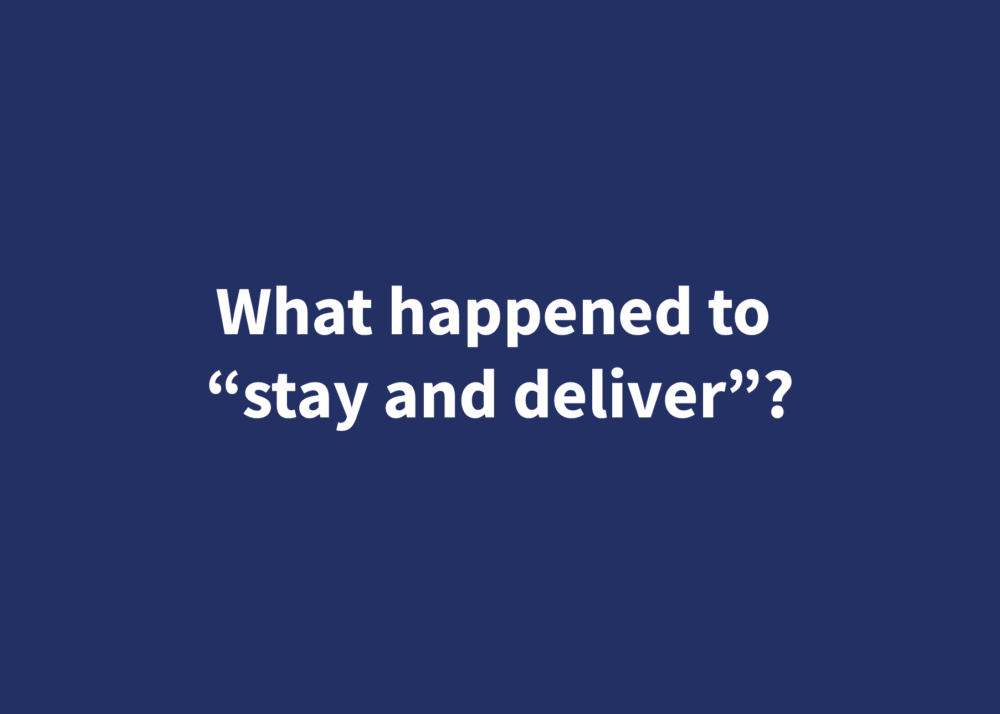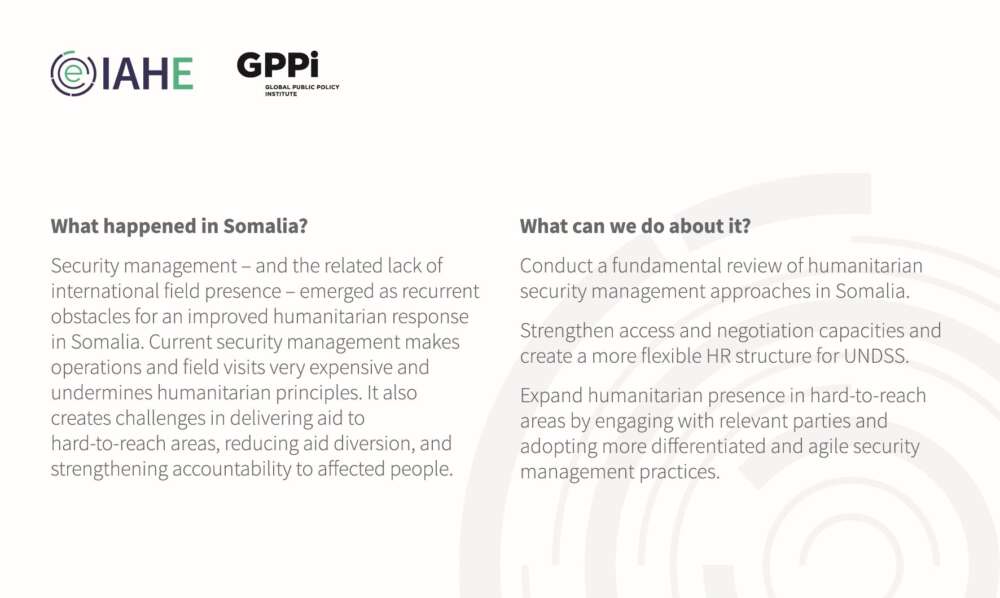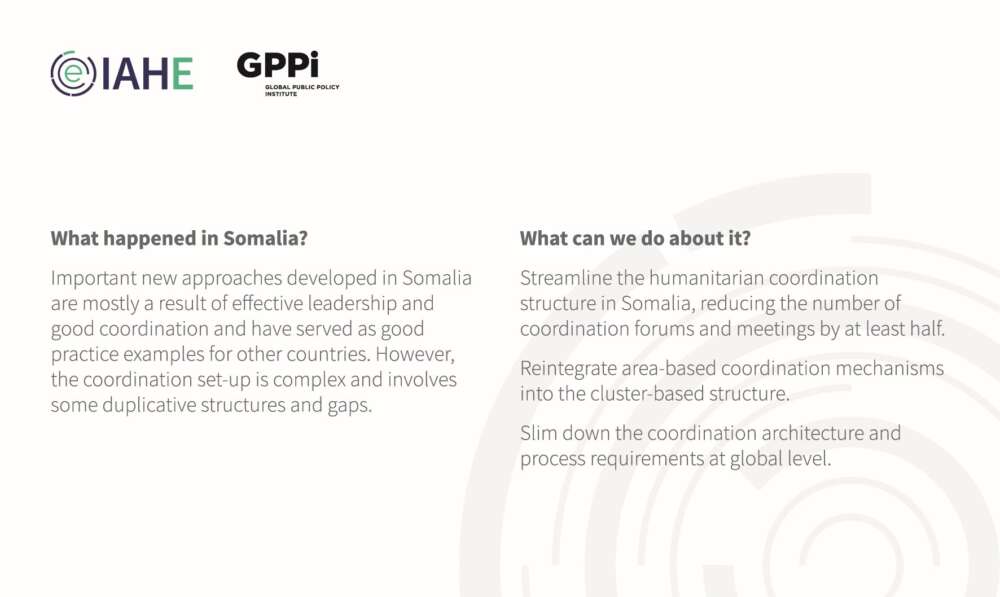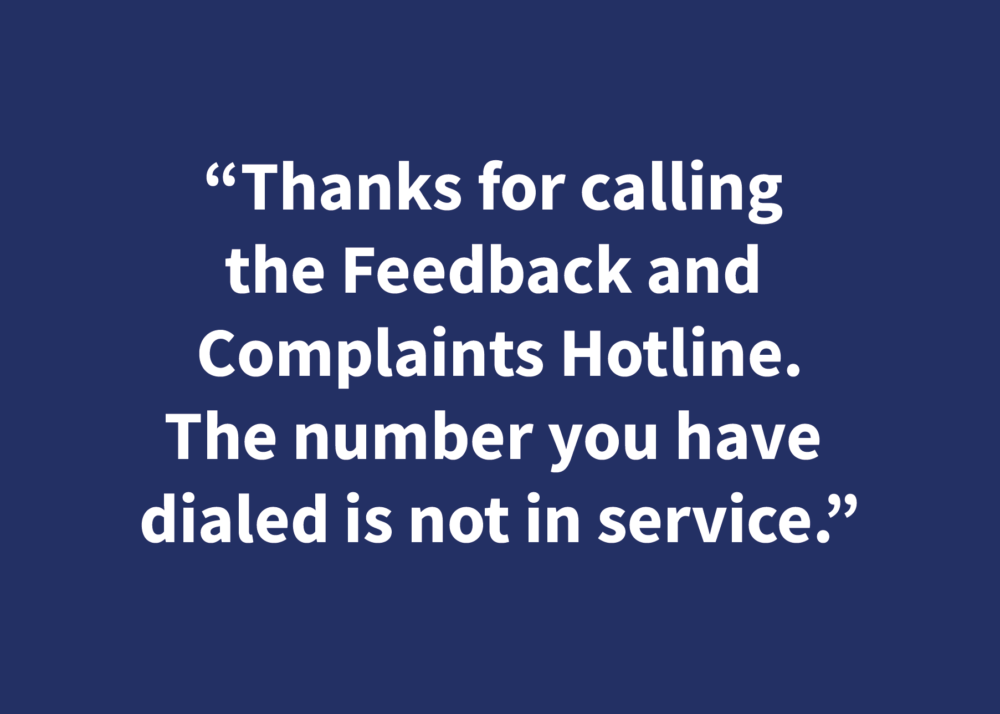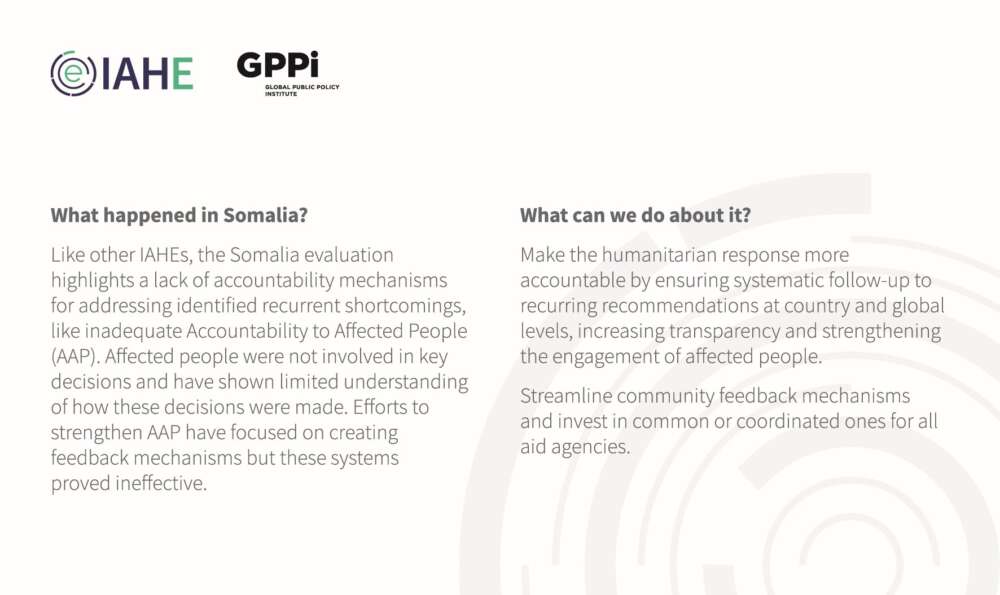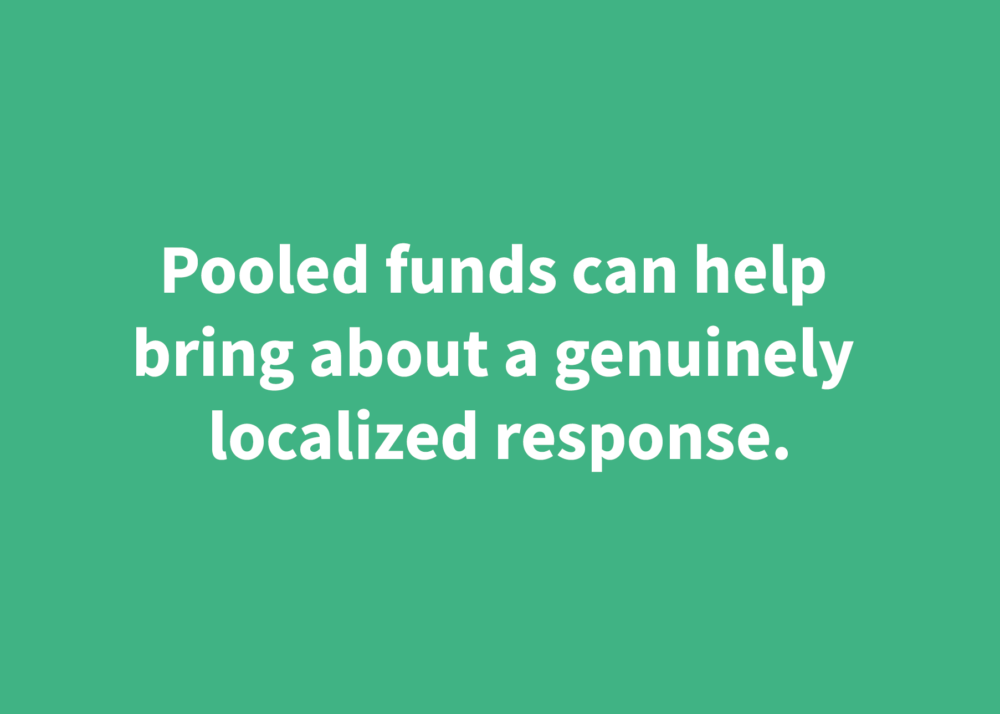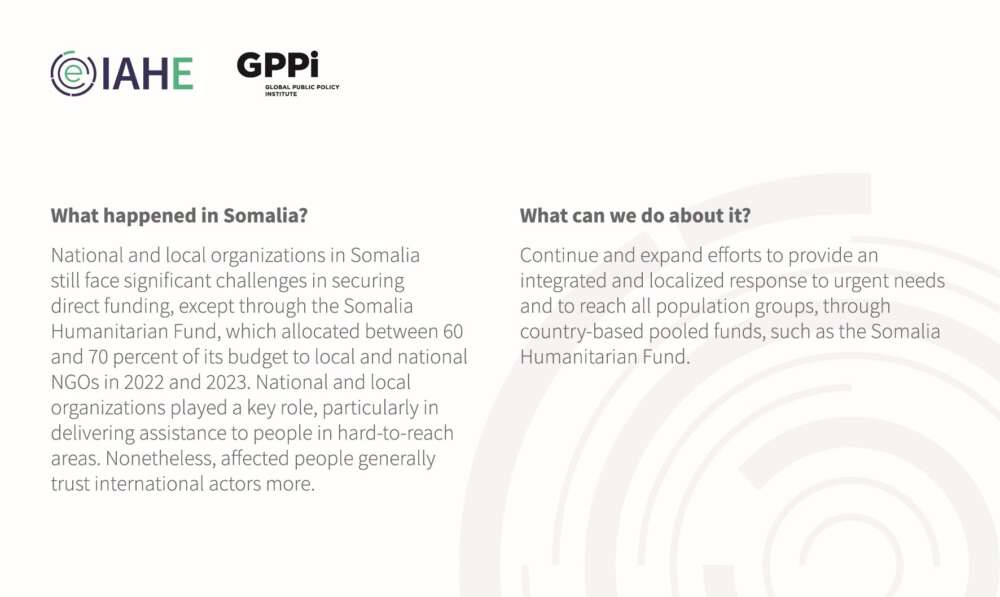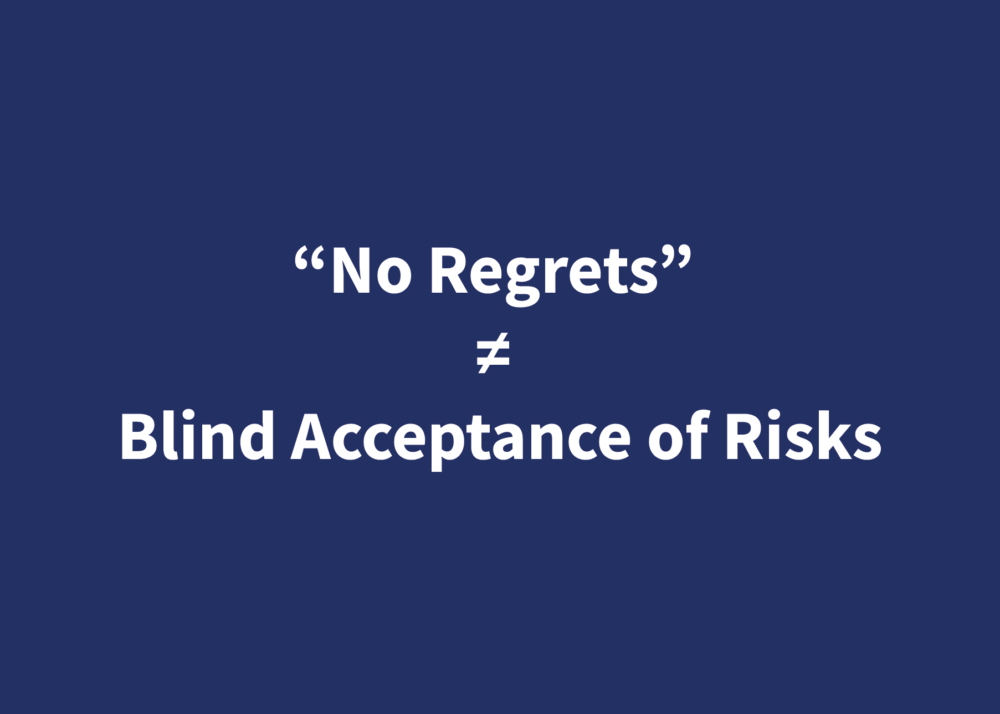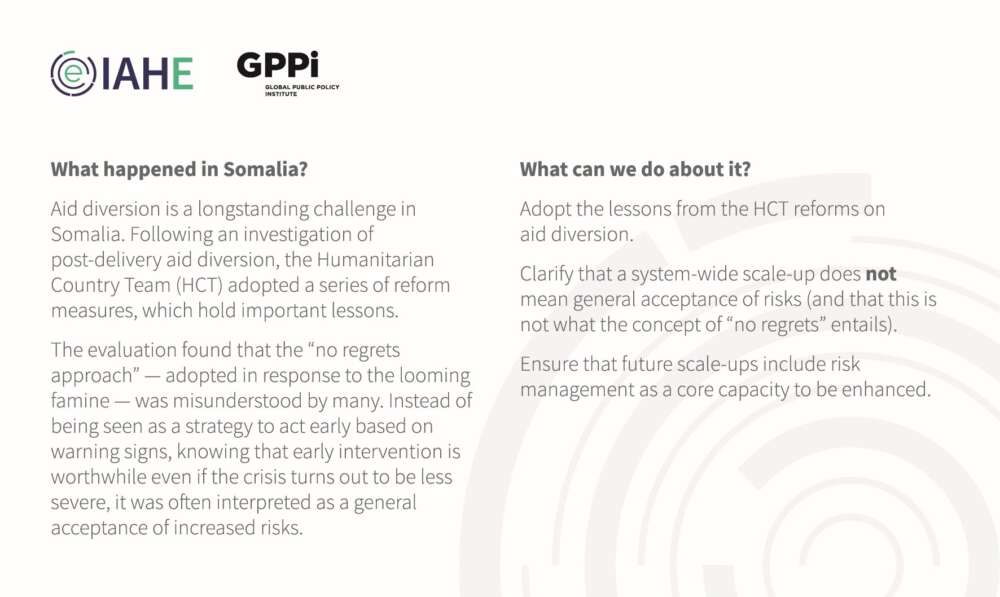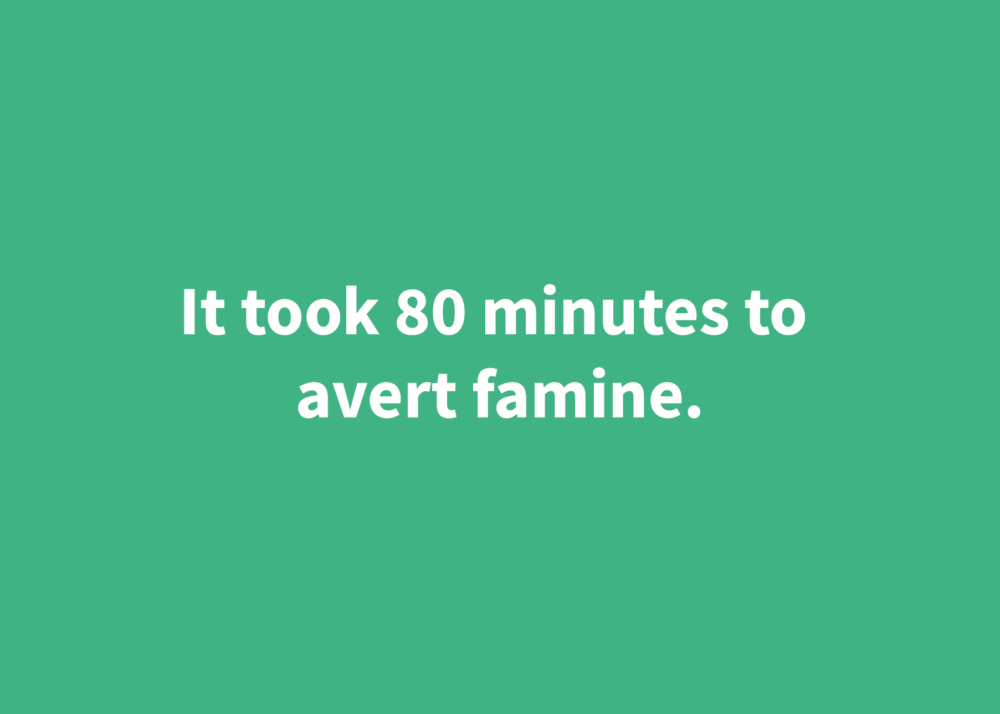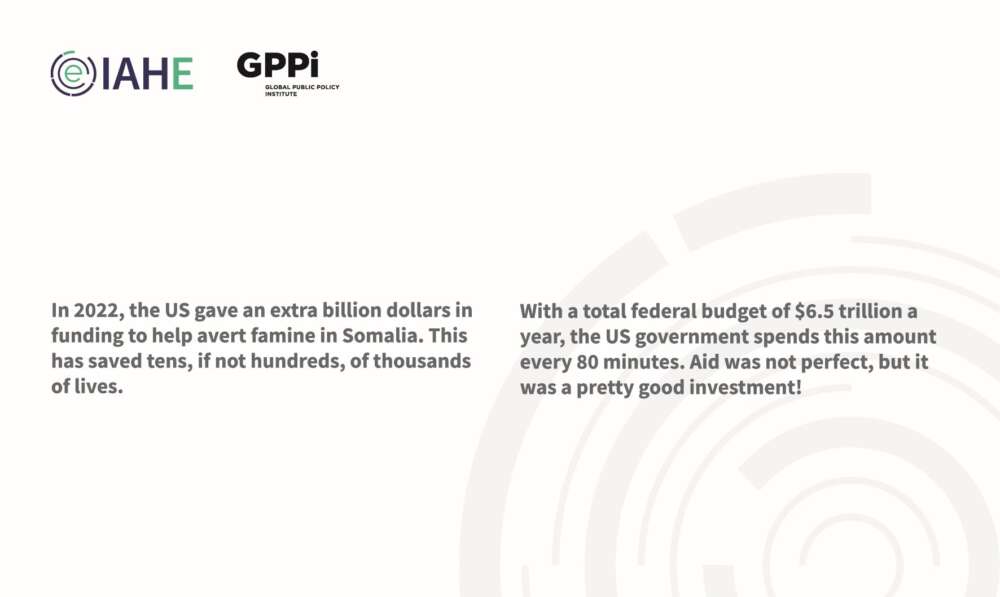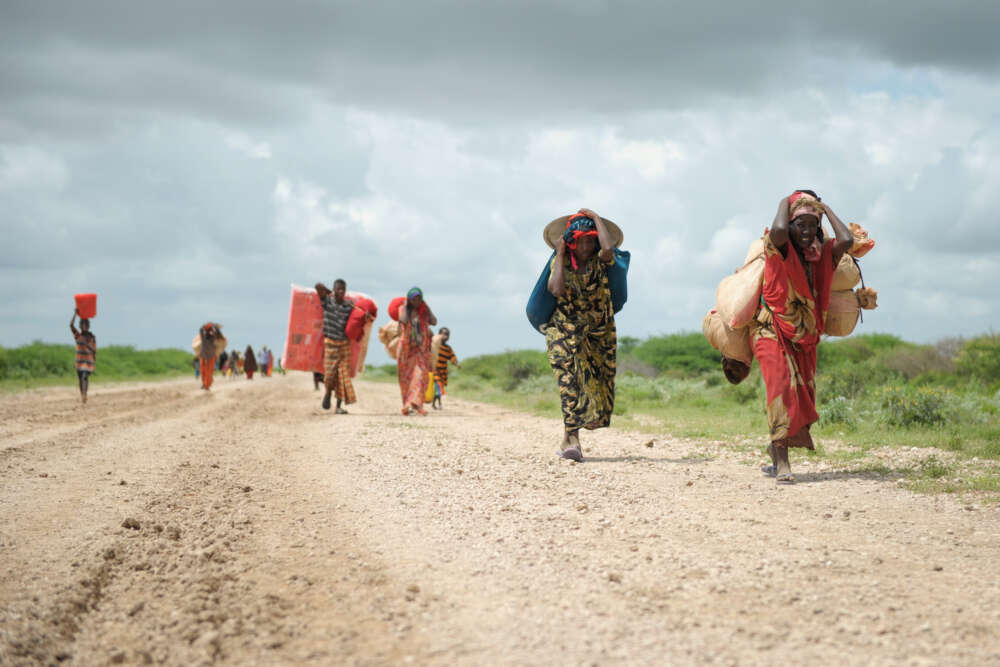Evaluation: The International Response to the Humanitarian Crisis in Somalia
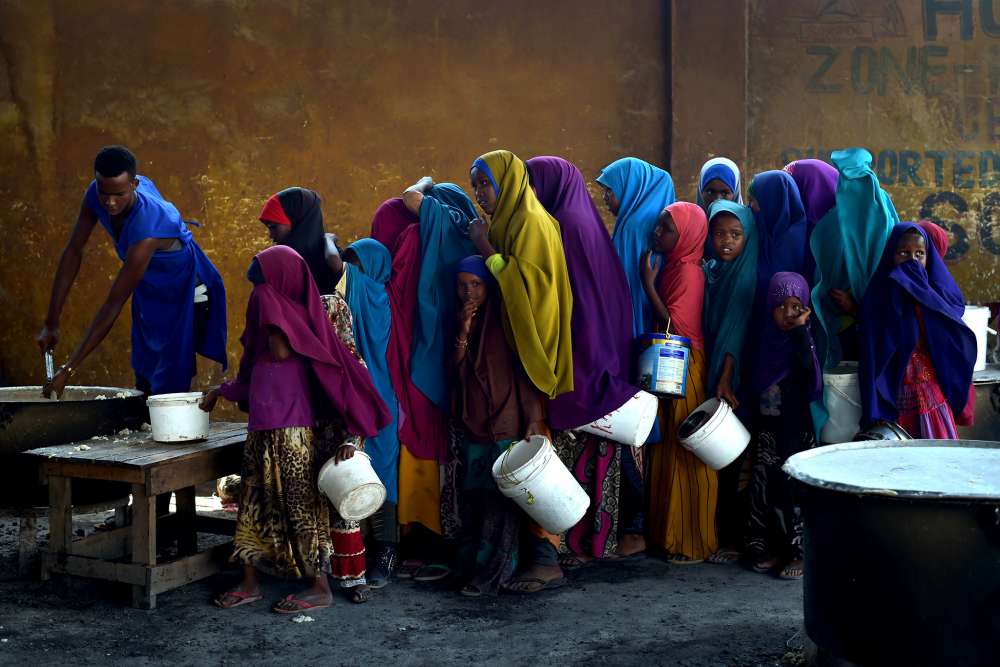
Project Team: Julia Steets, Elias Sagmeister
Duration: March - November 2024
Over the past 25 years, Somalia has endured severe droughts, famines and floods, resulting in the loss of over half a million lives and forcing many more to flee their homes. Drought-related crises throughout this period have devastated agriculture and livestock, leaving more than half the population food-insecure and urgently needing aid.
To make matters worse, an extended drought, considered the worst of the past four decades, hit East Africa between 2021 and 2023 and deeply affected Somalia. The emergency coincided with global price hikes, ongoing political insecurity and the aftermath of the Covid-19 pandemic. The cumulative impact of the droughts severely strained the resilience of Somali communities and eroded their livelihoods. While famine was ultimately averted, a recent estimate puts the toll at 43,000 excess deaths in 2022 alone.
In response to this worsening humanitarian crisis in Somalia, the Inter-Agency Standing Committee (IASC), chaired by the Emergency Relief Coordinator, launched a so-called Scale-Up Activation in 2023. In doing so, the Committee – the longest-standing and highest-level humanitarian coordination forum of the United Nations systems – aimed to tackle the devastating impacts of the drought and to prevent famine. In order to assess whether the international response achieved its objectives and to glean learnings for future scale-ups, the Emergency Relief Coordinator officially kick-started an Inter-Agency Humanitarian Evaluation (IAHE).
The IASC has chosen the Global Public Policy Institute (GPPi) to conduct this evaluation; GPPi has done so in close collaboration with Raagsan, a Somali social enterprise. In this capacity, GPPi will not only provide an independent assessment of the IASC’s joint response to the Somali humanitarian crisis (as outlined in the Somalia Humanitarian Response Plans for 2022 and 2023), but will also offer feedback on the work the Humanitarian Country Team has done to reduce aid diversion in Somalia.
We aim to be holistic in our approach and focus on assessing the logic of when and why progress is made or, alternatively, lags. Building on insights from stakeholder interviews, document analysis and primary data collection from affected communities, we will develop recommendations that consider both the drivers and obstacles to meaningful change.
The outcomes were published in March 2025: the evaluation report is available here and the inception report here.
For more information, please contact Julia Steets.
Videos
Key Project Output
IAHE: Lessons from the Scaled-Up Humanitarian Response in Somalia
In this evaluation, GPPi analyzed the scaled-up humanitarian response in Somalia (launched to mitigate the effects of a severe drought in 2021 – 2023) and distilled lessons for future scale-ups.
